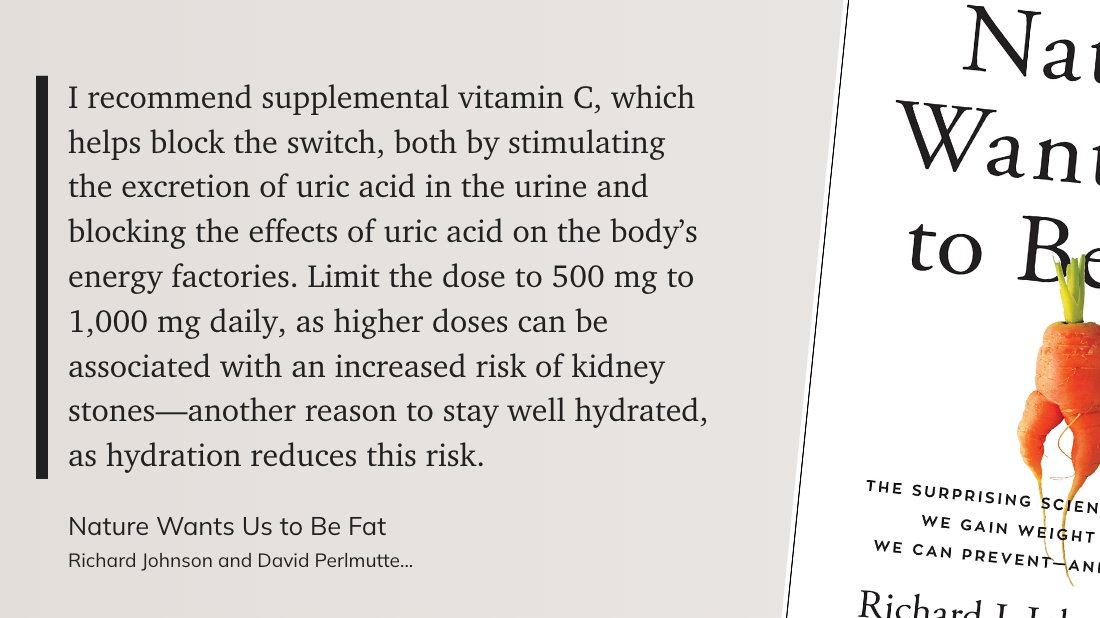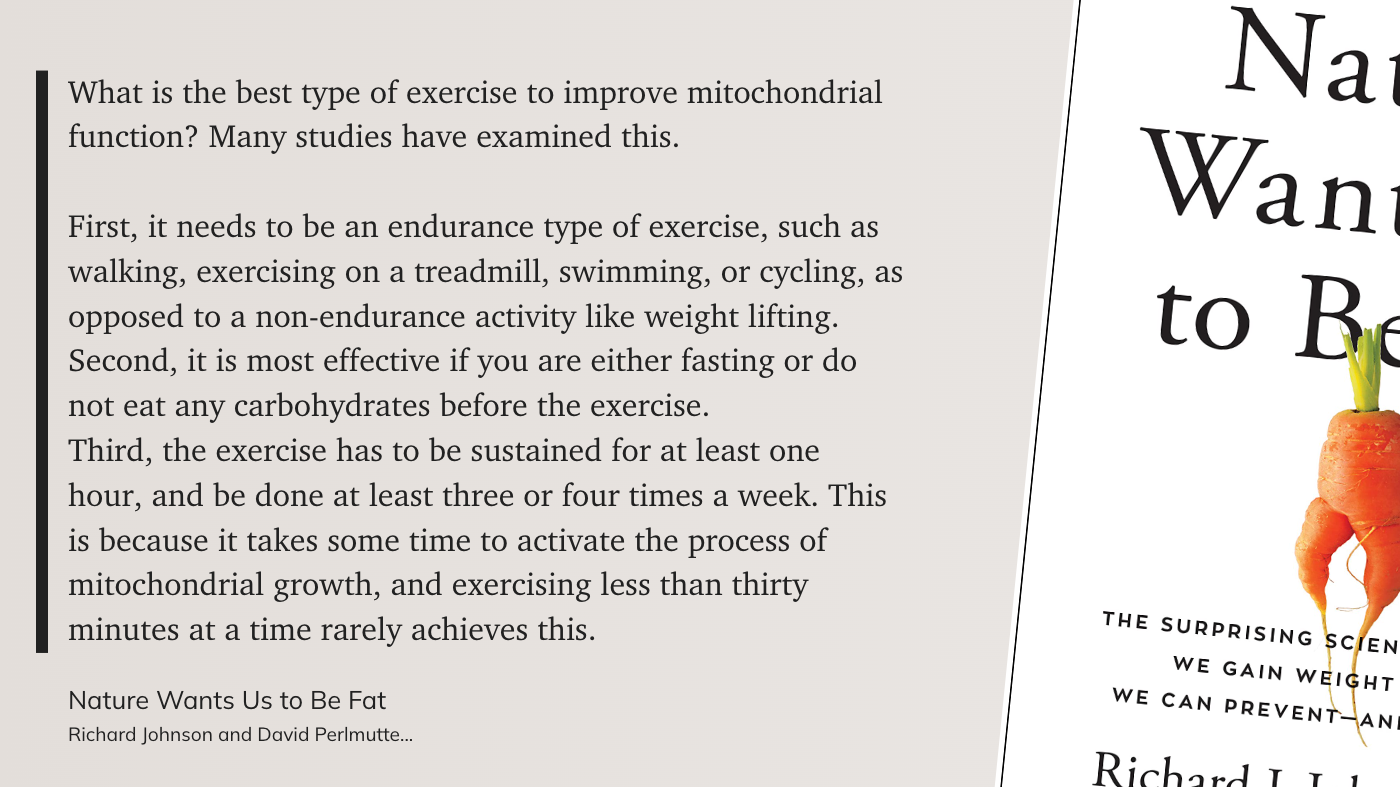take vitamin c
“I recommend supplemental vitamin C, which helps block the switch, both by stimulating the excretion of uric acid in the urine and blocking the effects of uric acid on the body’s energy factories. Limit the dose to 500 mg to 1,000 mg daily, as higher doses can be associated with an increased risk of kidney stones—another reason to stay well hydrated, as hydration reduces this risk.”
Richard Johnson and David Perlmutter, Nature Wants Us to Be Fat

quercetin
“These studies involve humans where they give them 180, 200 grams of fructose in a day. Within a couple weeks, they would have many metabolic issues. But this would not happen when these individuals received that level of fructose but had its metabolism blocked by simply giving them a gout pill called allopurinol. I want to mention parenthetically that quercetin as a nutritional supplement works almost as effectively as allopurinol. I mentioned earlier, it targets the same enzyme called xanthine oxidase. One study in 22 young men with mild elevation of their uric acid over eight weeks giving them 500 milligrams a day of quercetin dropped their uric acid by about 8%, just in eight weeks. So you’re targeting that enzyme involved in the manufacturing of uric acid.”
how the body makes fructose
“Scientists have known for decades that the body can make fructose. A special biological process known as the polyol pathway first converts glucose to a substance known as sorbitol,* then further converts the sorbitol to fructose. But while the polyol pathway is well known, it is generally thought to be minimally active in most people, such that it produced an inconsequential amount of fructose.”
Richard Johnson and David Perlmutter, Nature Wants Us to Be Fat

causes of fatty liver disease
“fructose causes non-alcoholic fatty liver disease (or NAFLD), while alcohol causes alcohol-associated fatty liver disease. However, as also mentioned earlier, the two are almost identical in appearance. This led us to wonder whether alcohol causes liver disease because it stimulates fructose production. To test this, we gave alcohol to mice that could not break down fructose. Amazingly, the alcohol failed to cause liver disease. In other words, fructose is also the cause of alcohol-induced liver disease.”
Richard Johnson and David Perlmutter, Nature Wants Us to Be Fat
exercise for mitochondrial regrowth
“What is the best type of exercise to improve mitochondrial function? Many studies have examined this.
First, it needs to be an endurance type of exercise, such as walking, exercising on a treadmill, swimming, or cycling, as opposed to a non-endurance activity like weight lifting. Second, it is most effective if you are either fasting or do not eat any carbohydrates before the exercise. Third, the exercise has to be sustained for at least one hour, and be done at least three or four times a week. This is because it takes some time to activate the process of mitochondrial growth, and exercising less than thirty minutes at a time rarely achieves this.”
Richard Johnson and David Perlmutter, Nature Wants Us to Be Fat

MESSy
“There’s no simple solution, but there are several practices that enable us to be more attuned to our emotions and to be more deliberate about our subsequent choices. A cheesy acronym I like–the only one I use in my practice–is getting MESSy:
• Mindfulness: The goal of mindfulness here isn’t stress reduction, but simply being more effective at noticing what we’re feeling. • Exercise: Regular physical activity attunes us to the physiological manifestations of emotion and allows us to sense an emotional response sooner. • Sleep: Ample research shows that when we' re not well-rested our ability to sense and regulate emotion is impaired. • (Reducing Chronic) Stress: Chronic, low-level stress diminishes our ability to regulate emotion, and there are often stressors we can minimize with some modest changes in our daily routines.”